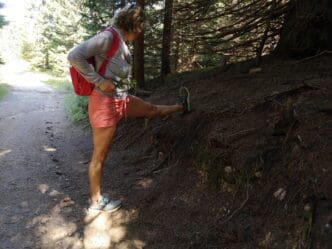A Quick Takeaway
The Story Behind the Trend
How to Make It Work for You
The Community View
For country runners, optimizing performance and safety on varied terrain hinges on selecting the right gear. Whether you’re navigating winding trails, muddy paths, or steep inclines, equipping yourself properly is paramount for an enjoyable and effective experience. From specialized footwear that grips challenging surfaces to moisture-wicking apparel that adapts to fickle weather, every piece of equipment plays a crucial role in enhancing your comfort, preventing injury, and ultimately, elevating your run.
The Foundation: Footwear
Your shoes are arguably the most critical piece of gear for country running, acting as your primary interface with the ground. Unlike road running shoes, trail running shoes are engineered to provide superior traction, protection, and stability across uneven and unpredictable surfaces.
Trail Running Shoes
Look for shoes with aggressive lug patterns on the outsole, which are deep, multi-directional treads designed to dig into soft ground, mud, and loose gravel. A rock plate embedded in the midsole offers protection from sharp rocks and roots, while reinforced toe caps shield your feet from impacts. Prioritize a snug fit that prevents your foot from sliding within the shoe, reducing the risk of blisters and instability on technical terrain.
Socks: Your Blister Defense
The right socks are just as important as the shoes themselves. Opt for synthetic blends or merino wool socks that wick moisture away from your feet, preventing blisters and keeping them dry. Avoid cotton, which absorbs sweat and stays wet, leading to discomfort and friction. Consider different thicknesses based on weather conditions and personal preference for cushioning.
Apparel for All Elements
Country running often means encountering diverse weather conditions, sometimes all within a single run. Layering is key to adapting to temperature fluctuations and staying comfortable.
Moisture-Wicking Base Layers
Start with a base layer made from synthetic fabrics like polyester or nylon, or natural fibers like merino wool. These materials draw sweat away from your skin, helping to regulate body temperature and prevent chilling. Avoid cotton shirts, which absorb moisture and can leave you feeling cold and heavy.
Mid-Layers for Insulation
On cooler days, a lightweight fleece or technical long-sleeve shirt serves as an excellent mid-layer. This layer provides insulation, trapping warm air close to your body without adding excessive bulk. It should be easily removable if temperatures rise during your run.
Outerwear: Shield Against the Elements
A waterproof and windproof jacket is indispensable for country running, especially in exposed areas or during inclement weather. Look for jackets that are breathable, allowing sweat vapor to escape while keeping rain and wind out. Packable options are ideal for stowing away when not needed.
Bottoms: Comfort and Protection
Depending on the terrain and weather, choose between running shorts, tights, or convertible pants. Shorts offer maximum freedom of movement in warm weather, while tights provide warmth, compression, and protection from abrasions or insect bites. For overgrown trails, consider durable pants that shield your legs.
Headwear and Gloves
A cap or visor protects your face from the sun and keeps sweat out of your eyes. In colder conditions, a lightweight beanie or headband retains body heat. Gloves can be essential for keeping hands warm, especially on chilly mornings or at higher altitudes.
Essential Accessories for Safety and Performance
Beyond clothing, several accessories can significantly enhance your country running experience, ensuring both performance and safety.
Hydration Systems
Carrying water is non-negotiable for country runs, especially longer distances or in warm weather. Options include hydration vests, which distribute weight evenly and offer storage, handheld bottles, or waist packs. Ensure your chosen system provides enough fluid for your planned route.
Navigation and Communication
A GPS watch is invaluable for tracking your route, pace, and distance, and can help you stay on course. For more remote areas, consider carrying a physical map and compass, or a fully charged smartphone with offline maps. Always inform someone of your route and estimated return time.
First-Aid and Safety
A small, lightweight first-aid kit containing bandages, antiseptic wipes, pain relievers, and any personal medications is a smart addition. A whistle can be used to signal for help in an emergency. Consider carrying a headlamp or small flashlight if there’s any chance your run will extend into dusk or darkness.
Nutrition
For runs lasting over an hour, bring easily digestible fuel like energy gels, chews, or bars. These provide quick carbohydrates to maintain energy levels and prevent bonking. Practice consuming these during training to avoid stomach upset on race day or long runs.
Prepare and Optimize
Equipping yourself for country running is an investment in your performance, safety, and enjoyment. Always test new gear on shorter runs before committing to a long distance or challenging trail. Regularly clean and inspect your gear to ensure its longevity and effectiveness. By thoughtfully selecting and maintaining your equipment, you’ll be well-prepared to tackle any trail, in any condition, and unlock your peak potential as a country runner.







